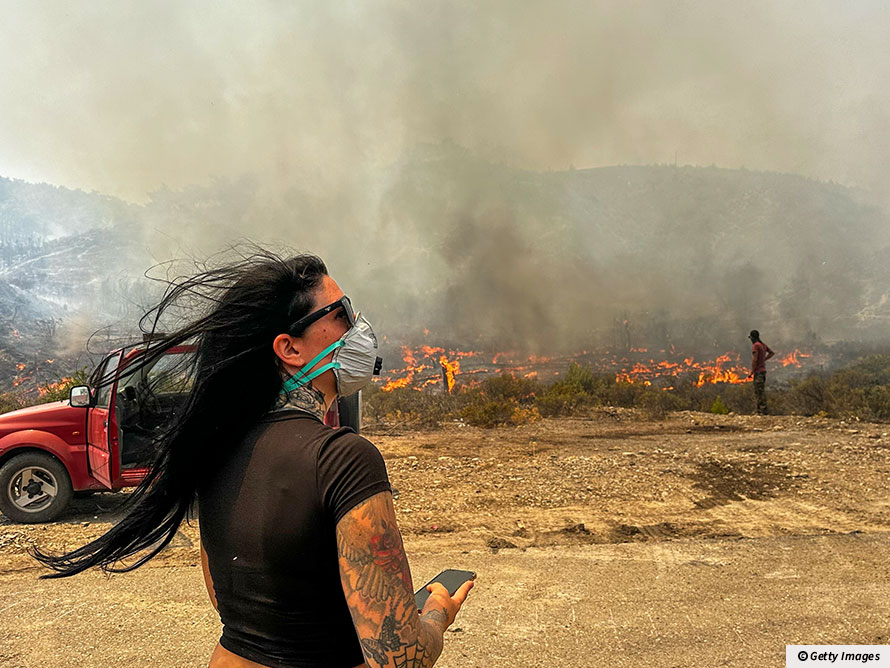Are humans naturally complacent? Even as several Greek islands caught fire this week, tourists continued to land on them. Some think we just cannot process the scale of the crisis.
10,000 climate records broken in one month
 Like wildfire: 19,000 people have been evacuated on the Greek island of Rhodes.
Like wildfire: 19,000 people have been evacuated on the Greek island of Rhodes. Glossary
Rhodes - A large Greek island known for both its ancient ruins and beach resorts.
Rishi Sunak - A British politician who was the Prime Minister of the United Kingdom from 2022 to 2024.
Pragmatic - Dealing with things sensibly and realistically, in a way that is based on practical rather than theoretical considerations.
Labour party - The main left-wing political party in the UK.
Complacency - Feeling of satisfaction with your own work that stops you from trying harder.
Economic growth - The process through which a country's wealth increases over time.
Lobbying - Trying to influence the decisions of the government. A lot of lobbying is legal and carried out by reputable organisations, but sometimes it can be illegal or unethical, especially when a politician uses their connections to benefit a company or organisation they belong to.
Federal - In the USA laws are made both by individual states and the federal government, which governs all states together.
Net zero - When the gases going into the atmosphere are balanced by those being taken out of it.
